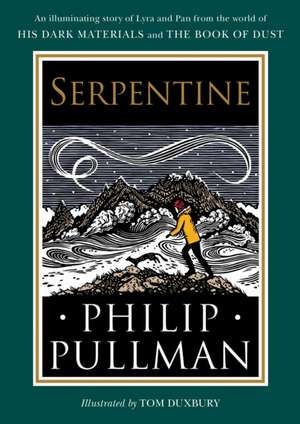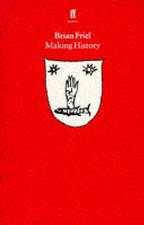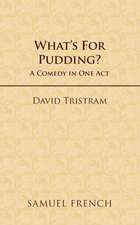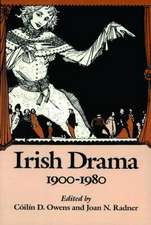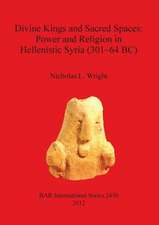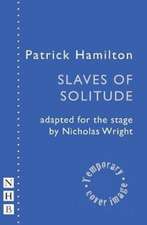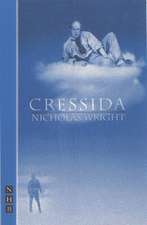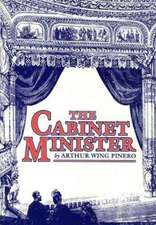His Dark Materials: Serpentine
Autor Philip Pullman Ilustrat de Tom Duxburyen Limba Engleză Hardback – 15 oct 2020 – vârsta de la 10 ani
This brand-new story, a beguiling must-read for Pullman fans old and new, is a perfect companion to His Dark Materials and a fascinating bridge to The Book of Dust. Watch the HBO adaptation of His Dark Materials, an original series starring Lin Manuel Miranda, Dafne Keen, Andrew Scott and Ruth Wilson
| Toate formatele și edițiile | Preț | Express |
|---|---|---|
| Paperback (3) | 59.22 lei 3-5 săpt. | +15.74 lei 7-11 zile |
| Scholastic – 10 noi 2022 | 59.22 lei 3-5 săpt. | +15.74 lei 7-11 zile |
| NICK HERN BOOKS – 31 mar 2005 | 82.68 lei 3-5 săpt. | +12.13 lei 7-11 zile |
| Laurel Leaf Library – 31 aug 2003 | 157.85 lei 3-5 săpt. | |
| Hardback (12) | 69.84 lei 3-5 săpt. | |
| RANDOM HOUSE CHILDREN'S BOOKS – 15 oct 2020 | 69.84 lei 3-5 săpt. | |
| Scholastic – 5 iul 2018 | 84.63 lei 3-5 săpt. | +19.28 lei 7-11 zile |
| Scholastic – 5 iul 2018 | 86.46 lei 3-5 săpt. | +25.93 lei 7-11 zile |
| Scholastic – 4 noi 2021 | 95.85 lei 3-5 săpt. | +15.74 lei 7-11 zile |
| Scholastic – 4 noi 2021 | 96.47 lei 3-5 săpt. | +17.96 lei 7-11 zile |
| Scholastic – 4 noi 2021 | 97.30 lei 3-5 săpt. | +21.01 lei 7-11 zile |
| Scholastic – 5 iul 2018 | 97.65 lei 3-5 săpt. | +22.23 lei 7-11 zile |
| Knopf Doubleday Publishing Group – 14 noi 2023 | 158.33 lei 3-5 săpt. | |
| SCHOLASTIC LTD – 7 noi 2024 | 210.96 lei 3-5 săpt. | +56.66 lei 7-11 zile |
| Everyman's Library – 30 noi 2011 | 254.91 lei 3-5 săpt. | |
| Knopf Doubleday Publishing Group – 22 iun 2021 | 267.95 lei 3-5 săpt. | |
| Alfred A. Knopf Books for Young Readers – 31 aug 2007 | 409.29 lei 3-5 săpt. |
Preț: 69.84 lei
Nou
Puncte Express: 105
Preț estimativ în valută:
13.37€ • 14.51$ • 11.23£
13.37€ • 14.51$ • 11.23£
Carte disponibilă
Livrare economică 01-15 aprilie
Preluare comenzi: 021 569.72.76
Specificații
ISBN-13: 9780593377680
ISBN-10: 0593377680
Pagini: 80
Dimensiuni: 138 x 180 x 15 mm
Greutate: 0.18 kg
Editura: RANDOM HOUSE CHILDREN'S BOOKS
ISBN-10: 0593377680
Pagini: 80
Dimensiuni: 138 x 180 x 15 mm
Greutate: 0.18 kg
Editura: RANDOM HOUSE CHILDREN'S BOOKS
Notă biografică
PHILIP PULLMAN is one of the most acclaimed writers working today. He is best known for the His Dark Materials trilogy, which has been named one of the top 100 books of all time by Newsweek and one of the all-time greatest novels by Entertainment Weekly. The Book of Dust, Pullman's eagerly anticipated return to the world of His Dark Materials, will also be a book in three parts. It began with La Belle Sauvage and continues with The Secret Commonwealth. Pullman was knighted for his services to literature in the 2019 New Years Honours. He lives in Oxford, England. Tom Duxbury grew up in Yorkshire and studied illustration at the University of Brighton.
Descriere
Descriere de la o altă ediție sau format:
Lyra Belacqua and her animal daemon live half-wild and carefree among scholars of Jordan College, Oxford. The destiny that awaits her will take her to the frozen lands of the Arctic, where witch-clans reign and ice-bears fight. Her extraordinary journey will have immeasurable consequences far beyond her own world...
Lyra Belacqua and her animal daemon live half-wild and carefree among scholars of Jordan College, Oxford. The destiny that awaits her will take her to the frozen lands of the Arctic, where witch-clans reign and ice-bears fight. Her extraordinary journey will have immeasurable consequences far beyond her own world...
Extras
Preface
I began to write this novel with little sense of the plot, even less notion of the theme, and only the vaguest idea of the characters. I'm convinced that that's the way to do it. I tried to work out the plan of a novel once, when I was young, ahead of writing it. It was an excellent plan. It took me months and covered page after page, and in the end I was so fed up with the damn thing I threw it away and started a quite different novel with no preparation at all, which came out much better. I suppose these things are partly temperamental; I know that some excellent writers make a great thing of planning every book before they write it; but it doesn't work for me.
One thing such a technique prevents is what I think every long book must have if I'm not to go mad writing it, and that's the element of surprise. I had no idea what Iorek Byrnison, the armoured bear, would say when Lyra first came face to face with him. His vulnerability to strong drink was a huge surprise. I knew there was going to be a boy called Will, but his reason for running away and thus meeting Lyra was a complete mystery to me until it happened. As for Lee Scoresby, I was as ignorant of his existence as the gyptians themselves the sentence before he turned up. These surprises are pleasant and exciting; they feel like a kind of reward. If I knew they were coming I wouldn't enjoy them at all.
In the first sentence above, I mentioned something I called the theme. By that I mean what the book is about, in some fundamental sense. I've heard that some writers decide on a theme first, and then make up some characters and a plot to exemplify it. They seem to get on all right, but again, it wouldn't work for me. A book, especially a long book like His Dark Materials, has to have some sort of theme, or else you'll be working for a long time (this story took me seven years) in a moral vacuum. But that doesn't mean you have to decide what the theme is. If you're working as seriously as you know how to, for a matter of years, then a theme will emerge whether you want it to or not. It'll be something you think very important. It might be the most important thing you know. Once you know what it is, you can shape the story more precisely to help it show up, but it's a mistake to rely on the theme to lead the story for you. I think I did that in a couple of places in this book, and it's the worse for it. But there we are, we're never too old to learn. Next time I shall remember: the story should lead, and the theme will emerge in its own time and its own way. Besides, if you want to write something perfect, write a haiku. Anything longer is bound to have a few passages that don't work as well as they might.
So here is a story that was the best I could do at the time, written with all the power and all the love I had, about the things I think most important in the world. I think it was worth writing. I hope you think it's worth reading.
Philip Pullman
From the Hardcover edition.
I began to write this novel with little sense of the plot, even less notion of the theme, and only the vaguest idea of the characters. I'm convinced that that's the way to do it. I tried to work out the plan of a novel once, when I was young, ahead of writing it. It was an excellent plan. It took me months and covered page after page, and in the end I was so fed up with the damn thing I threw it away and started a quite different novel with no preparation at all, which came out much better. I suppose these things are partly temperamental; I know that some excellent writers make a great thing of planning every book before they write it; but it doesn't work for me.
One thing such a technique prevents is what I think every long book must have if I'm not to go mad writing it, and that's the element of surprise. I had no idea what Iorek Byrnison, the armoured bear, would say when Lyra first came face to face with him. His vulnerability to strong drink was a huge surprise. I knew there was going to be a boy called Will, but his reason for running away and thus meeting Lyra was a complete mystery to me until it happened. As for Lee Scoresby, I was as ignorant of his existence as the gyptians themselves the sentence before he turned up. These surprises are pleasant and exciting; they feel like a kind of reward. If I knew they were coming I wouldn't enjoy them at all.
In the first sentence above, I mentioned something I called the theme. By that I mean what the book is about, in some fundamental sense. I've heard that some writers decide on a theme first, and then make up some characters and a plot to exemplify it. They seem to get on all right, but again, it wouldn't work for me. A book, especially a long book like His Dark Materials, has to have some sort of theme, or else you'll be working for a long time (this story took me seven years) in a moral vacuum. But that doesn't mean you have to decide what the theme is. If you're working as seriously as you know how to, for a matter of years, then a theme will emerge whether you want it to or not. It'll be something you think very important. It might be the most important thing you know. Once you know what it is, you can shape the story more precisely to help it show up, but it's a mistake to rely on the theme to lead the story for you. I think I did that in a couple of places in this book, and it's the worse for it. But there we are, we're never too old to learn. Next time I shall remember: the story should lead, and the theme will emerge in its own time and its own way. Besides, if you want to write something perfect, write a haiku. Anything longer is bound to have a few passages that don't work as well as they might.
So here is a story that was the best I could do at the time, written with all the power and all the love I had, about the things I think most important in the world. I think it was worth writing. I hope you think it's worth reading.
Philip Pullman
From the Hardcover edition.
